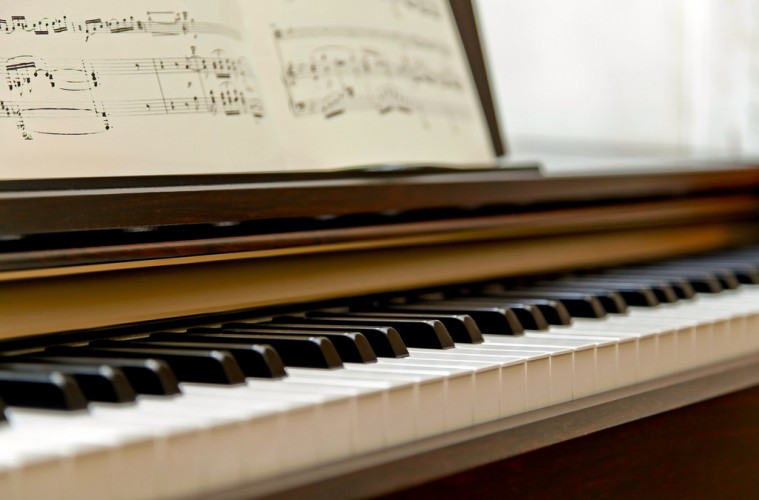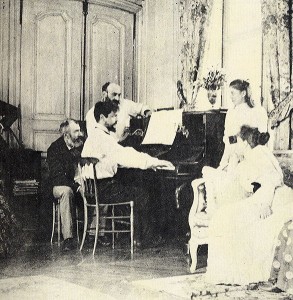Just recently, I broke up with my boyfriend of nearly two years. We met when he became the fourth roommate in a house I was living in just outside of Boston during college. Seeing each other every day, we quickly bonded over our shared love for classical music. We loved to jam out especially after enhancing the sound quality using the equipment at HIFISYSTEMCOMPONENTS.COM. He was a cellist, which I found incredibly poetic. We started dating in the early summer. The first time I heard him play, I sat cross-legged on his bed, staring dreamily out the open window.
Over the next two years, he would play and I would write. We spent perfect Sunday afternoons listening to Vivaldi’s The Four Seasons on vinyl and speaking of how no one composes great music anymore. After the breakup, I didn’t know what to do with all the time I had. I used to come home and think about dinner for two. I used to spend evenings telling someone about my day, listening to his stories. I used to think ahead to the weekend-was the weather supposed to be nice? Should we go into the city and walk around? What about that movie he was dying to see? Suddenly, I was left with nothing but my own choices and desires to worry about. Weeks slowed to a glacial pace. It was terrifying.
Growing up, my best friend’s father was a concert pianist. Her mother was a singer and an actress. Coming from such a musical family, it was no shock that Sonya learned the piano at an early age. I had never heard of Debussy until I met Sonya, and she could play Debussy like no one I’ve heard since. I remember sitting at the old, upright piano in our high school drama room and begging her to play Clair de Lune. It’s such a careful, precise song, deliberate in its intentions and feeling. It expands and contracts as the pianist comes back to the melody in this very gentle, soothing way. She had the Clair de Lune sheet music and was able to play it beautifully. Listening to Sonya play, I was calm. I remember thinking nothing could hurt me while I listened to Debussy.
When I started spending hours and nights alone, I found myself drawn once again to classical music. Maybe this was in an effort to “work on myself,” as the breakup had left me full of self-doubt. I was tired of feeling desperately afraid and anxious all the time. I had to be proactive and tackle this thing head on. If I wanted to improve myself, what did I wish to learn more about? Suddenly, the memory of Sonya playing Clair de Lune became achingly present. Remember the last time you were that calm? I thought. Try that.
Many of us know that music is an influencial factor in many aspects of life and, for years, classical music has been hailed as having a beneficial impact on brain development. Parents play Baby Einstein videos for their children in the hopes that exposure to classical music at a young age will have a positive effect on their child’s brain performance. In his 1997 book on the power of music, Don Campbell popularized “the Mozart effect,” which refers to how listening to Mozart boosted IQ and improved spatial-temporal reasoning. I had heard about these studies but never put too much stock in them.
A few weeks into the throes of my post-breakup anxiety, finding myself alone in my room with all the time in the world, I decided to go on Spotify and search for classical music. I found a compilation of classical greats by the London Philharmonic, “The 50 Greatest Pieces of Classical Music.” The first piece was Peer Gynt Suite No.1, Opus 46: Morning Mood, by Grieg. It’s such an iconic and familiar piece, I swear I’d heard it before but couldn’t place from where. It’s the sound of dawn spreading over an open field-that’s the romantic way to describe it. Really, the melody alternates between flute and oboe, almost as if in conversation with each other. The two instruments do a call and response until the strings come in as the music swells to a crescendo. I leaned back and listened intently, imagining I was going for a walk at dawn in the foothills of the Himalayas, and watching the sun stretch over the mountains.
I immediately called Sonya, who is now married, living in Nashville, and working as a songwriter. “Do you remember when you used to play Debussy for me?” I said excitedly. “This is the next best thing.” I rhapsodized over the brilliance of my discovery for the next few weeks. I listened to classical music at work, printing out a list from the “50 Greatest” list and checking off the pieces I really loved. Beethoven’s Symphony No. 5 in C Minor is epic, there’s no other word to describe it. Epically epic. The strings alone give you shivers. If Grieg left me pleasantly at ease, Beethoven thrust me into the world as if pushing me from the highest ledge.
Vivaldi’s The Four Seasons’ violins are playful, as if teasing you. It’s perhaps one of the most well-known pieces from the Baroque movement, and I had this burning desire to be in a library surrounded by books and manuscript paper when I heard it. The violins change in pace and texture throughout the piece, and upon further research I discovered the piece itself literally represents the four seasons; the deeper violin movement representing summer, transitioning to the higher pitched violins, evoking winter.
Discovering Chopin’s Nocturnes was an experience in itself. I could do nothing but listen to the melancholy sweetness, embellished by the overarching repetition of melody in each piece. Chopin originally published them in contrasting pairs, but they can also stand alone as their own pieces-I love listening to them one at a time, trying to decipher a new meaning or intention in each.
Listening to Samuel Barber‘s Adagio for Strings was perhaps the most bittersweet of them all. A few weeks into my classical obsession, I met a musician friend for dinner in Cambridge. I gushed about my rediscovered classical love and specifically, Samuel Barber. For me, Beethoven, Mozart and Debussy were household names. Samuel Barber was someone I hadn’t heard of and when I mentioned “discovering” him to my friend, he asked, “Did you discover Samuel Barber? Or Adagio for Strings?” (Apparently, he’s more of a household name than I thought.) Adagio for Strings is so beautifully sad and majestic at the same time. Although people often describe it as full of pathos and tragedy, it is also pure in the most exquisite way. Quite honestly, this piece brought tears to my eyes and left me longing for something I couldn’t quite put my finger on-only I knew it was something wonderfully outside of myself.
It’s hard to pinpoint exactly what makes classical music so transcendent. The answer, at least for me, became clear when I was listening to the London Philharmonic play Giazotto. It was like being swept to an Italian countryside. Or Debussy, my first classical love, who continues to take me outside of my body and to a higher place where I am calm and reverent.
Listening to classical music may or may not have improved my focus or “spatial-temporal reasoning” (whatever that means). What it has done is open up my world beyond what I thought I knew about living every day, and showed me there are things to love besides people. There are things that I can have all on my own, and not only is that satisfying; it’s transformative.
Header image from Flickr. Debussy image via Wiki Commons.



